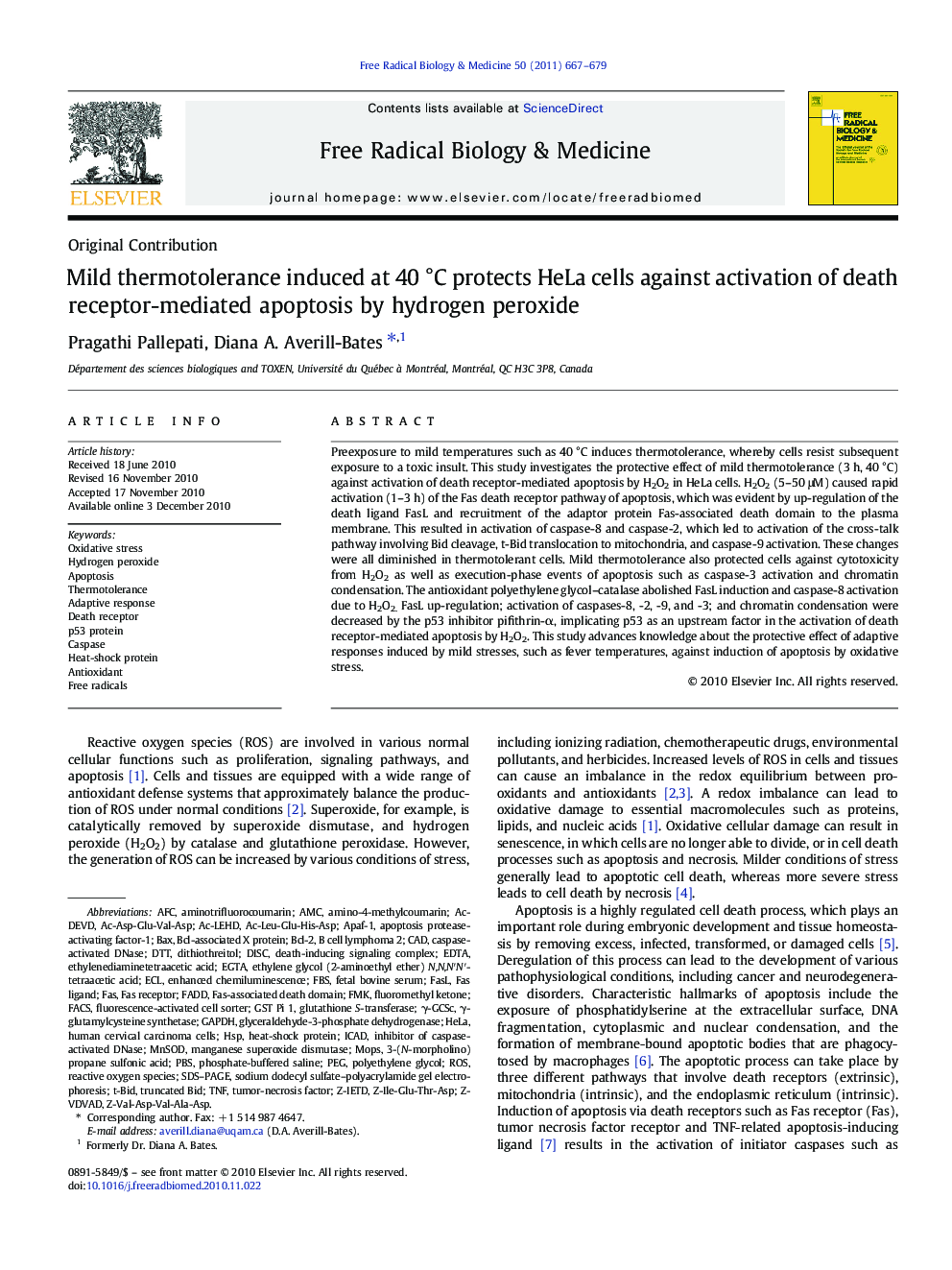| کد مقاله | کد نشریه | سال انتشار | مقاله انگلیسی | نسخه تمام متن |
|---|---|---|---|---|
| 1909223 | 1046713 | 2011 | 13 صفحه PDF | دانلود رایگان |

Preexposure to mild temperatures such as 40 °C induces thermotolerance, whereby cells resist subsequent exposure to a toxic insult. This study investigates the protective effect of mild thermotolerance (3 h, 40 °C) against activation of death receptor-mediated apoptosis by H2O2 in HeLa cells. H2O2 (5–50 μM) caused rapid activation (1–3 h) of the Fas death receptor pathway of apoptosis, which was evident by up-regulation of the death ligand FasL and recruitment of the adaptor protein Fas-associated death domain to the plasma membrane. This resulted in activation of caspase-8 and caspase-2, which led to activation of the cross-talk pathway involving Bid cleavage, t-Bid translocation to mitochondria, and caspase-9 activation. These changes were all diminished in thermotolerant cells. Mild thermotolerance also protected cells against cytotoxicity from H2O2 as well as execution-phase events of apoptosis such as caspase-3 activation and chromatin condensation. The antioxidant polyethylene glycol–catalase abolished FasL induction and caspase-8 activation due to H2O2. FasL up-regulation; activation of caspases-8, -2, -9, and -3; and chromatin condensation were decreased by the p53 inhibitor pifithrin-α, implicating p53 as an upstream factor in the activation of death receptor-mediated apoptosis by H2O2. This study advances knowledge about the protective effect of adaptive responses induced by mild stresses, such as fever temperatures, against induction of apoptosis by oxidative stress.
Journal: Free Radical Biology and Medicine - Volume 50, Issue 6, 15 March 2011, Pages 667–679